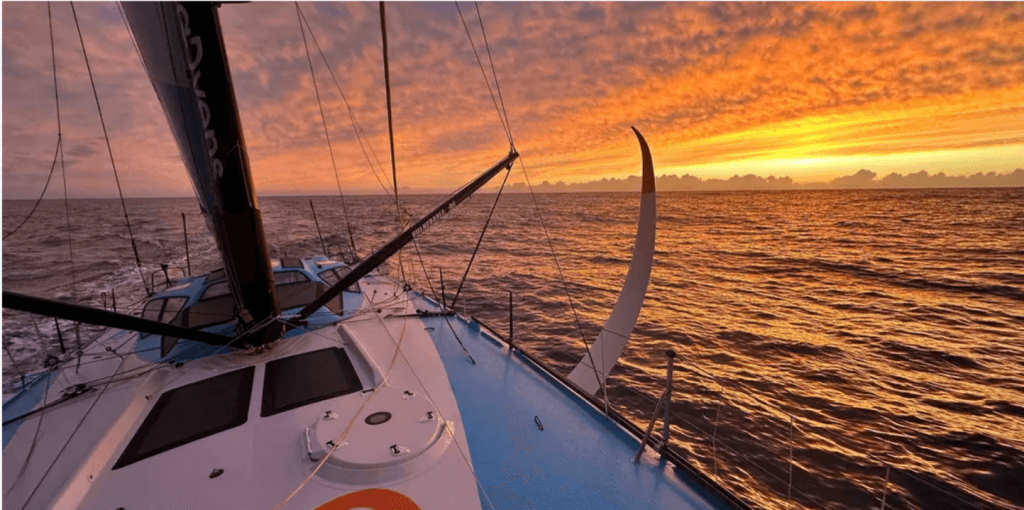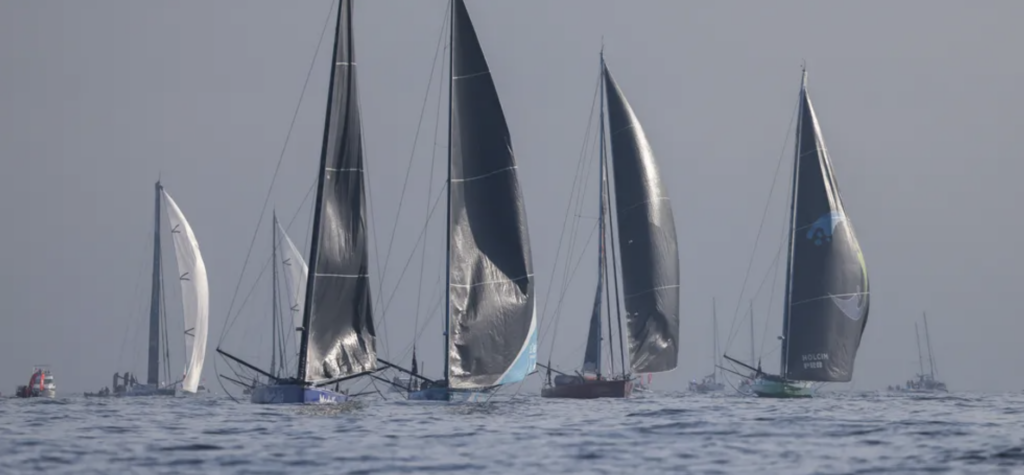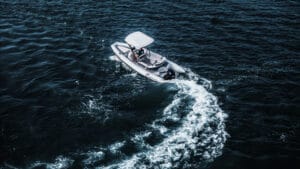Vendée Globe: Atlantic challenges persist for skippers in final week

The Vendée Globe fleet remains engaged in a series of strategic and physical challenges in the Atlantic as the solo, non-stop, round-the-world race enters its final stages.
Leaders Charlie Dalin (MACIF Santé Prévoyance) and Yoann Richomme (Paprec Arkéa) are navigating the South Atlantic with an eye on the finish line, which is now a week away for the frontrunners. Dalin currently holds a 115-mile lead over Richomme, but with the unpredictable nature of this phase of the race, the outcome remains uncertain.
Both skippers are aware of the historical difficulties often encountered in the closing stages of the Vendée Globe. Richomme has continued to push hard, capitalising on minor shifts in conditions to maintain his position.
Further back in the fleet, the competition for fourth through tenth place has become increasingly complex, with several skippers adopting differing routes through the South Atlantic. Jérémie Beyou (Charal), Sam Goodchild (Vulnerable) and Boris Herrmann (Malizia-Seaexplorer) have chosen to stay closer to the rhumb line, gaining short-term advantages but potentially facing challenges in reaching the south-easterly trade winds. In contrast, Nico Lunven (Holcim PRB) and Paul Meilhat (Biotherm) have opted for a more easterly route, seeking to avoid the light winds associated with a ridge of high pressure.

‘Not easy,’ says Lunven
Lunven has described the South Atlantic passage as one of the race’s more demanding segments. “This climb up the South Atlantic is not easy,” he explains. “I knew it from having done it previously on the Volvo Ocean Race or as a router on land for Armel Le Cléac’h last winter. A complicated part in terms of weather, we have very unstable conditions, lots of storms – I haven’t had any too violent yet, but still some very disruptive squalls.”
Adding to Lunven’s difficulties are technical challenges on board his vessel. “Three days ago, my masthead was torn off, along with the antennas and the aerials. That means steering in compass mode only,” he says. Despite deploying a spare aerial, the system is less efficient, requiring him to manage adjustments manually.
He also notes the physical toll of these challenges. “As soon as there is a bit of stability, I take the opportunity to go to sleep, setting alarms everywhere so that I can wake up quickly if the boat slows down. When you’re steering manually like this, it requires a significant investment of time and energy, and it cuts into the time I would otherwise spend on weather analysis or resting.”
Despite these issues, Lunven remains optimistic about his strategic choice. “I went for an eastern option, and we’ll see how it goes. For the moment, I am not unhappy with my option in the sense that I managed not to stop in calm weather. I’ve always had wind to move forward,” he explains.
He also highlights the challenges posed by the semi-permanent front across the South Atlantic. “It’s not like the evolving fronts linked to depressions we know in Western Europe. Here, along this front, depressions form on the continent of South America and cross the South Atlantic. The choice is either a direct route close to the coast, which is shorter but often has less wind, or an offshore route, which is longer but offers a narrower and potentially easier area to cross.”
Lunven remains cautious, however. “For now, I’m happy with the wind I have, but the next few days will reveal if this was the right decision. I hope to reach the trade winds soon and head north towards the Doldrums.”

Mid-fleet battles intensify
Behind the leading pack, skippers are navigating their own strategic dilemmas. Benjamin Dutreux (Guyot Environnement) has aligned with the eastern option, while Clarisse Crémer (L’Occitane en Provence) appears to favour the coastal route. Sam Davies (Initiatives Cœur), currently in lighter winds, faces pressure from veteran Jean Le Cam (Tout commence en Finistère-Armor Lux), who has made significant progress since rounding Cape Horn.
Among the next group of skippers, Benjamin Ferré (Monnoyeur Duo for a Job) is on track to round Cape Horn, while Kiwi sailor Conrad Colman (MS Amlin) has moved into 22nd place after a spirited climb through the rankings.
Colman reflects on his experience after two months at sea. “I’m a little jealous that the leaders will be home in a few days, able to pick up their children from school. For me, the competition is intense, and it’s exciting. I think that two months at sea without direct competitors would have been much harder – it’s good sport!”
Room for improvement
Chinese skipper Jingkun Xu continues to learn from the race and remains positive despite physical challenges and solitude. “Two months at sea, and I’m starting to feel tired, especially with my shoulder injury,” Xu admits. “Morally, I’ve enjoyed the navigation and staying positive, but I miss my family and fresh fruit!”
He acknowledges the Vendée Globe as a formative experience. “I thought it would be extremely difficult, but I’ve surprised myself. I feel like I can still improve in the future – I have room for growth.”
With Dalin and Richomme leading the charge and the rest of the fleet navigating complex conditions and tactical choices, the final weeks of the Vendée Globe promise to deliver gripping competition. For the frontrunners, the Bay of Biscay is on the horizon, while others further back prepare for the crossing of Cape Horn and the final Atlantic sprint.
Last week, defending champion Yannick Bestaven announced his withdrawal from the race after he suffered damage that was impossible to repair at sea. The news came two weeks after a ‘devastated’ Pip Hare abandoned her Vendée Globe race when her mast broke into two pieces.













